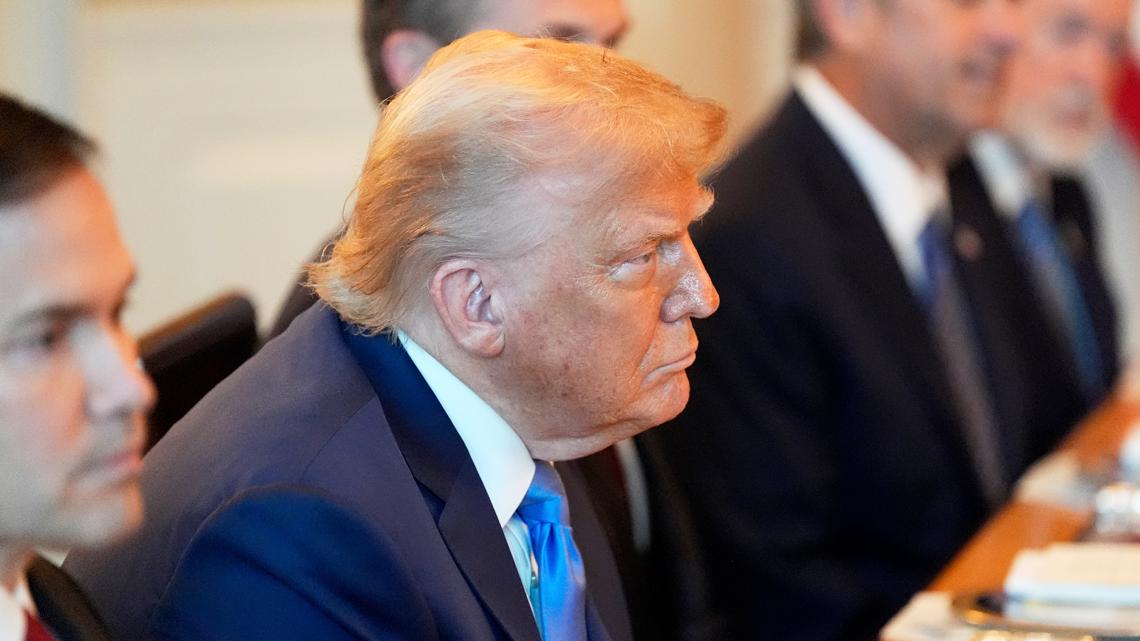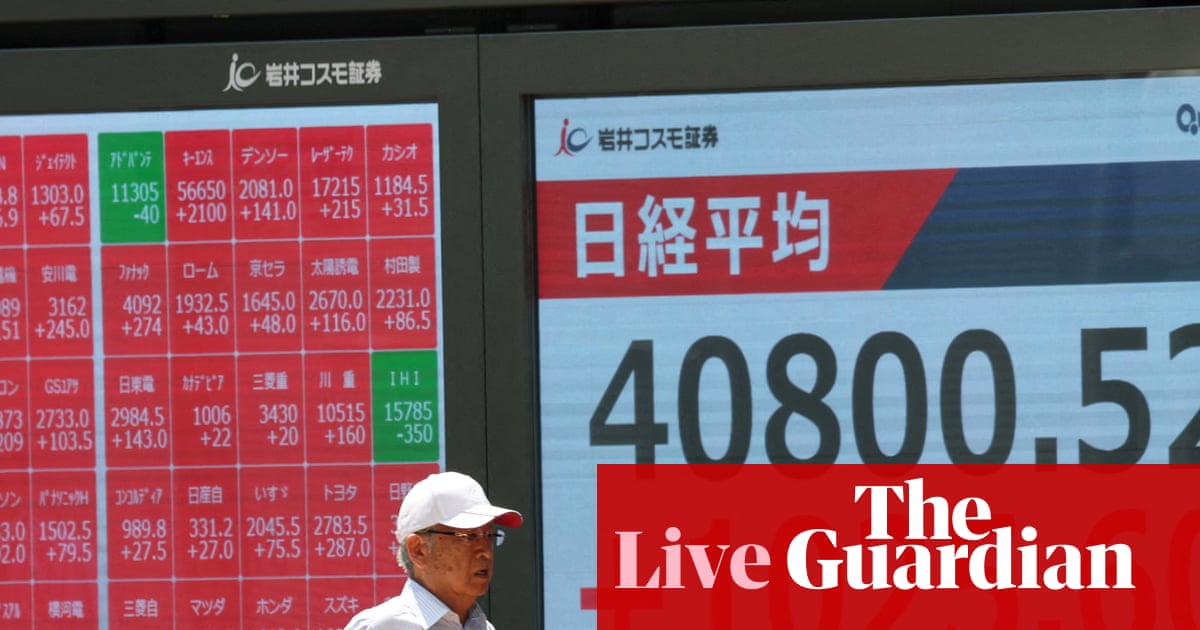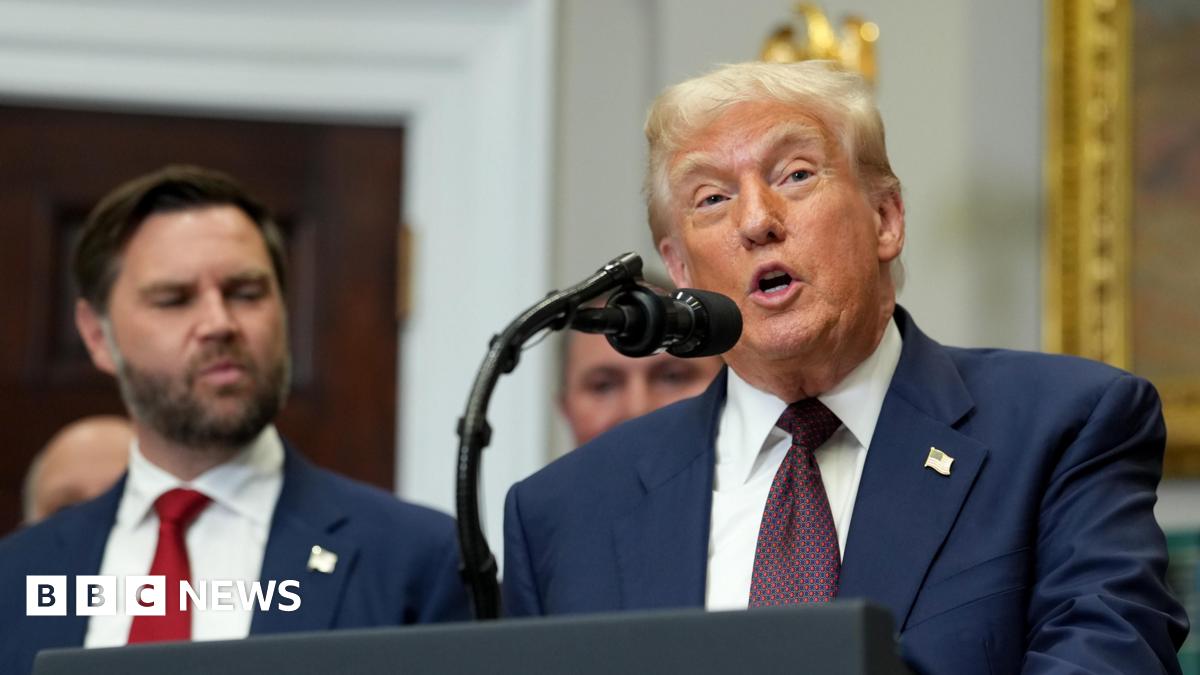T4K3.news
Market reacts calmly to impending Trump tariff deadline
Investment firms report minimal concern over upcoming tariffs as August 1 approaches.

Analysts show little concern as August 1 tariff deadline approaches.
Market response to Trump's tariff deadline remains steady
Major investment firms like Goldman Sachs and Deutsche Bank are observing minimal market concern as the August 1 deadline for President Trump’s tariffs approaches. Initially, analysts feared that tariffs would lead to significant inflation. However, this anxiety has lessened considerably over recent months. Goldman Sachs anticipates that the proposed tariffs will likely be delayed, and instead of a prolonged surge in inflation, they predict a one-time increase instead. Although the S&P 500 index is up 4.6% this month, there is a growing awareness that a strong market might embolden the president to implement higher tariffs. As the deadline nears, speculation about the economic impact continues, but analysts are more confident that any effects will be manageable.
Key Takeaways
"While we don’t expect the ‘letter tariffs’ scheduled for August 1 to take effect, we now build in an increase in the ‘reciprocal’ tariff rate from 10% to 15%."
Goldman Sachs chief economist explains the adjustment in tariff expectations as the deadline nears.
"On tariffs, it’s clear that markets aren’t pricing in the proposed August 1 rates."
A Deutsche Bank analyst comments on the discrepancy between market performance and tariff expectations.
"While August 1 is critical for testing Trump's resolve, it will not mark a point of no return for negotiations."
Macquarie strategists discuss long-term implications of tariff policies beyond the deadline.
"If the economy is fairing well, it may give the president the confidence to push ahead with his threats."
Analysis of how market performance may influence Trump's tariff decisions.
The current market optimism contrasts sharply with earlier fears surrounding tariffs. The belief that the effects of these tariffs will be momentary rather than ongoing shifts the focus towards potential negotiation outcomes. Hedge funds and investors seem to operate under the assumption that Trump’s administration prefers a deal over conflict, as evident from their surprising market performance. This suggests a complex dynamic where confidence could lead to actual tariff increases, undermining the very stability currently enjoyed.
Highlights
- Tariff fears have cooled as markets remain steady.
- Trump's economic strategies may not impact inflation as expected.
- Market optimism may embolden Trump's tariff threats.
- Negotiations are expected to continue past the deadline.
Potential for increased tariffs could impact market stability
Investors may face unforeseen consequences if President Trump implements higher tariffs as markets assume stability. The intertwining of tariff threats and market confidence raises concerns about future economic fallout.
Continued monitoring of the situation remains necessary as market reactions unfold.
Enjoyed this? Let your friends know!
Related News

Investors remain calm ahead of tariff deadline

Dow futures fall after Trump's tariff announcement

New 39% tariff on Swiss luxury imports proposed

U.S. stock futures decline as tariff talks stall

Trump announces new tariffs on imports
Trump's new tariffs to impact global trade

FTSE 100 hits record high following US-Japan trade deal

Trump raises tariffs on over 90 countries
